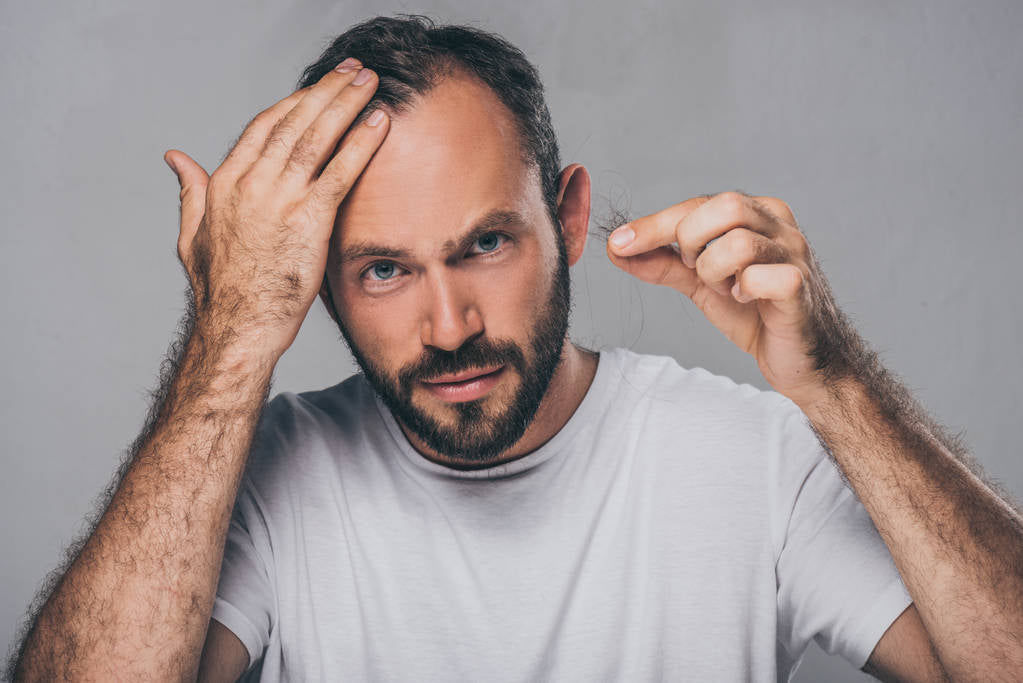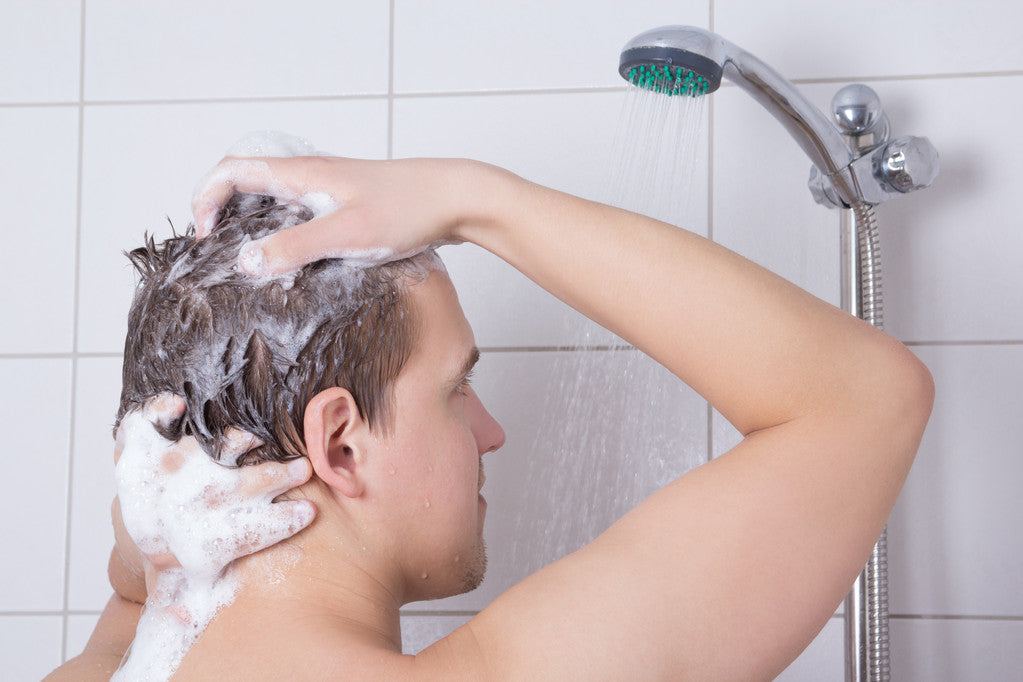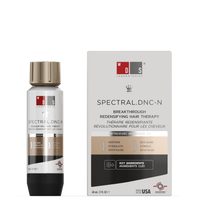
Seeking a way to restore the fullness and vitality of your hair?
The path to male hair regrowth is a blend of science, patience, and the right strategies. Yet, with advancements in hair care technology and a deeper understanding of the factors influencing hair growth, this might be at least slightly easier than it seems. Keep reading as we'll explore some innovative strategies and practical tips to help you reclaim thicker, healthier hair.
A Quick Dive into Hair Growth in Men
As a dynamic process, hair growth is influenced by different factors, including genetics, hormonal balance, and lifestyle habits. Typically, men's hair grows approximately half an inch per month, which translates to about six inches annually.
However, hair growth varies, and it happens in a process known as the hair growth cycle that differs from person to person. This growth unfolds in three critical stages:
- The Anagen Phase (Growth Stage): This is when the hair follicles are actively producing hair, which can last several years.
- The Catagen Phase (Transition Stage): During this brief period, hair growth slows down, and the hair follicles prepare to enter the resting phase.
- The Telogen Phase (Resting Stage): Hair growth ceases, and after a few months, the hair falls out, making way for new growth.
Understanding these stages is foundational to grasping why hair grows at different rates for everyone and how certain strategies can optimise this growth.
Factors Influencing Hair Growth
In case you're wondering "Is male hair loss genetic?" - there's both good and bad news! Several factors influence hair growth speed, including:
- Genetics
- Hormonal fluctuations, particularly DHT (dihydrotestosterone)
- Stress
- Low testosterone levels
- Age
- Inadequate nutrition
- Damaged hair follicles
- Certain medications
- Specific medical conditions and diseases
The good news? With numerous factors at play, there are plenty of adjustments you can make to optimise your hair growth potential beyond your natural rate!

Strategies for Male Hair Regrowth
What can significantly impact male hair regrowth? Start by using FDA-approved treatments like minoxidil and finasteride. Minoxidil enhances blood flow to the scalp, revitalising dormant hair follicles, while finasteride targets the hormonal cause of male hair loss by inhibiting DHT production. Consistent use of these medications can not only slow hair loss but also foster new growth.
They say, "You are what you eat," and that rings especially true for hair health. A diet rich in omega-3 fatty acids, antioxidants, and essential vitamins nourishes the scalp and hair from within. Prioritising foods like eggs, salmon, avocados, and almonds ensures your hair receives the nutrients it needs for optimal growth.
Another thing that directly affects hair growth is the scalp's condition. Regular cleansing with gentle, antioxidant male hair growth shampoos removes build-up, while conditioning treatments nourish and protect the hair. Try scalp massages, too. They can significantly improve blood circulation to the scalp, promoting healthier and thicker hair growth.
Supplements, particularly those containing biotin, can bolster hair health, too! While not a cure-all, these supplements can fill nutritional gaps that might hinder growth, ensuring your hair has the building blocks it needs to thrive.
Stress's impact on hair health cannot be overstated, making it one of the common reasons for male hair loss. Conditions like telogen effluvium, where stress pushes hair into a resting phase, can lead to significant hair loss. Adopting stress-reduction practices can help mitigate these effects and support hair retention and regrowth.
Although it may seem counterintuitive, regular trims can actually prevent damage and maintain hair health. Eliminating split ends and breakage helps ensure that hair remains strong and resilient, which furthermore supports hair's overall health and appearance.
Harsh chemicals and treatments can damage hair, impeding its growth. So, pick gentle, nourishing hair growth products for men and protect your hair from environmental stressors like UV rays and chlorine. Doing so helps prevent damage and support your hair's natural growth cycle.
Final Thoughts
As you follow these tips on how to regrow your lost hair as a male, remember that consistency is key. Regular use of particularly beneficial male hair loss treatments like minoxidil and finasteride, combined with lifestyle changes, can yield noticeable improvements over time. Moreover, integrating supplements for male hair loss to fill any nutritional voids and adopting gentle hair care practices can give even more amazing results.
For those seeking a comprehensive solution, DS Laboratories offers a Men's Hair Density Kit designed to address the multifaceted needs of male hair regrowth. This kit combines the power of advanced treatments with the nourishment of essential nutrients, providing a targeted approach to hair loss. Explore it and take the first step towards reclaiming the vitality and fullness of your hair.

















